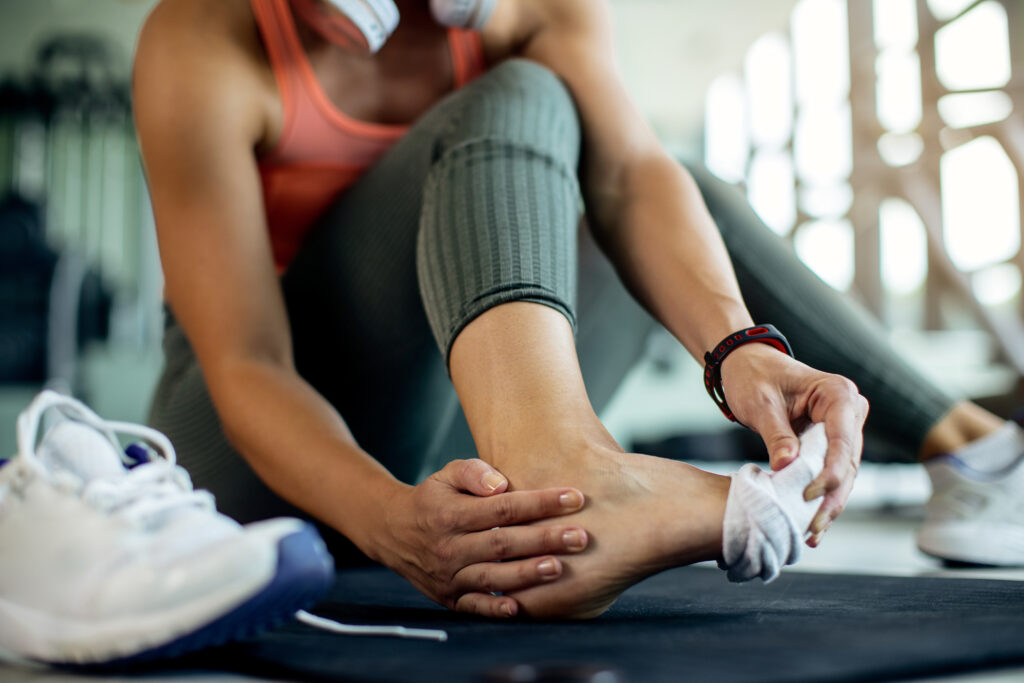How to Treat Achilles Tendonitis: Expert Tips for Quick Relief

With the rise of fitness enthusiasts and athletes in Bengaluru and across India, Achilles tendonitis has become increasingly prevalent. Whether you’re a runner, footballer, or someone who enjoys high-impact exercises, understanding how to treat Achilles tendonitis effectively is crucial to recovering quickly and preventing re-injury.
At BSI Physiotherapy Bangalore, we specialize in physiotherapy for Achilles tendonitis, offering personalized treatment plans that combine rehabilitation, exercises, and advanced therapies to restore function and relieve pain.
In this guide, we’ll cover expert tips for quick relief from Achilles tendonitis, along with trending treatment strategies in India.
1. Rest and Activity Modification
The first step in treating Achilles tendonitis is resting the affected tendon. Continuing high-impact activities like running, jumping, or intense gym workouts can worsen the inflammation and delay healing.
Expert tips for activity modification:
Replace high-impact activities with low-impact exercises such as swimming, cycling, or elliptical training.
Limit repetitive movements that strain the tendon.
Gradually reintroduce your usual workouts under the guidance of a physiotherapist.
2. Ice Therapy for Pain Relief
Applying ice to the affected area is a simple yet effective method to manage Achilles tendonitis pain. Ice helps reduce inflammation, swelling, and discomfort, particularly during the acute phase of the injury.
How to apply ice effectively:
- Use an ice pack wrapped in a towel.
- Apply it to the tendon for 15–20 minutes, 2–3 times daily.
- Avoid direct contact with skin to prevent frostbite.
Physiotherapists in Bengaluru recommend combining ice therapy with gentle mobility exercises to maintain flexibility without aggravating the tendon.
Trending keywords incorporated:
Achilles tendonitis home treatment Bengaluru
Physiotherapy for Achilles tendonitis India
3. Anti-Inflammatory Medications
Nonsteroidal anti-inflammatory drugs (NSAIDs) like ibuprofen or naproxen can help alleviate pain and reduce inflammation associated with Achilles tendonitis.
Important considerations:
- Always use medication under the guidance of a healthcare professional.
- Combine medication with physiotherapy exercises and activity modification for better outcomes.
Medications are most effective when used as part of a comprehensive physiotherapy plan, rather than as a standalone solution.
4. Eccentric Strengthening Exercises
Eccentric exercises, where muscles lengthen under tension, are highly effective for Achilles tendon rehabilitation. The Alfredson protocol, involving slow heel drops, is widely recognized for tendon recovery.
How to perform eccentric exercises safely:
- Stand on the edge of a step with your heels off the edge.
- Slowly lower your heels below the step level, then lift back up with the unaffected leg.
- Repeat for 12–15 reps, 2–3 sets, twice daily.
It’s crucial to perform these exercises under supervision to avoid overloading the tendon.
Regular eccentric training strengthens the tendon, improves flexibility, and reduces the risk of re-injury.
5. Proper Footwear and Orthotics
Footwear plays a key role in Achilles tendonitis recovery. Shoes with adequate heel support, cushioning, and stability can significantly reduce stress on the tendon.
Key recommendations:
- Avoid worn-out shoes during workouts.
- Consider custom orthotics to correct biomechanical issues such as flat feet or overpronation.
- Physiotherapists in Bengaluru often assess gait and recommend appropriate footwear for both treatment and prevention.
6. Advanced Treatments: Shockwave Therapy
For chronic or stubborn cases, shockwave therapy is an effective non-surgical option. This therapy uses high-energy sound waves to stimulate healing in the tendon.
Benefits of shockwave therapy:
- Accelerates tissue repair
- Reduces chronic inflammation
- Non-invasive and safe for most patients
Clinics like Alleviate Pain Clinic in Bengaluru offer this advanced treatment for patients who do not respond to traditional physiotherapy or medication.
Trending keywords incorporated:
- Achilles tendonitis shockwave therapy India
- Physiotherapy for Achilles tendonitis India
7. Consult a Specialist for Persistent Symptoms
If symptoms persist despite home care and exercises, it’s important to consult a physiotherapist or orthopedic specialist.
Why professional guidance is crucial:
- Accurate diagnosis of tendon damage
- Personalized rehabilitation program
- Supervised progression of exercises
- Prevents worsening or chronic issues
In Bengaluru, experienced physiotherapists provide comprehensive Achilles tendonitis treatment, including manual therapy, exercise prescription, and recovery planning.
Common Mistakes to Avoid
Even with proper care, some mistakes can slow recovery or worsen the injury:
- Ignoring pain and continuing high-impact activities
- Skipping eccentric strengthening exercises
- Using improper footwear during workouts
- Rapidly increasing training load
- Neglecting physiotherapy guidance
Avoiding these errors ensures faster recovery and long-term tendon health.
Conclusion
Achilles tendonitis can be painful and limiting, but with the right approach, recovery is achievable. A combination of rest, ice therapy, anti-inflammatory medications, eccentric exercises, proper footwear, and advanced therapies can restore function and reduce pain. Clinics like Physiotherapy Clinics in Marathahalli provide specialized treatments
For residents in Bengaluru and across India, consulting a specialist at a reputable clinic like BSI Physiotherapy ensures a safe, effective, and tailored treatment plan.
By following expert advice and incorporating preventive strategies, you can return to your active lifestyle faster and avoid future Achilles tendon injuries.
